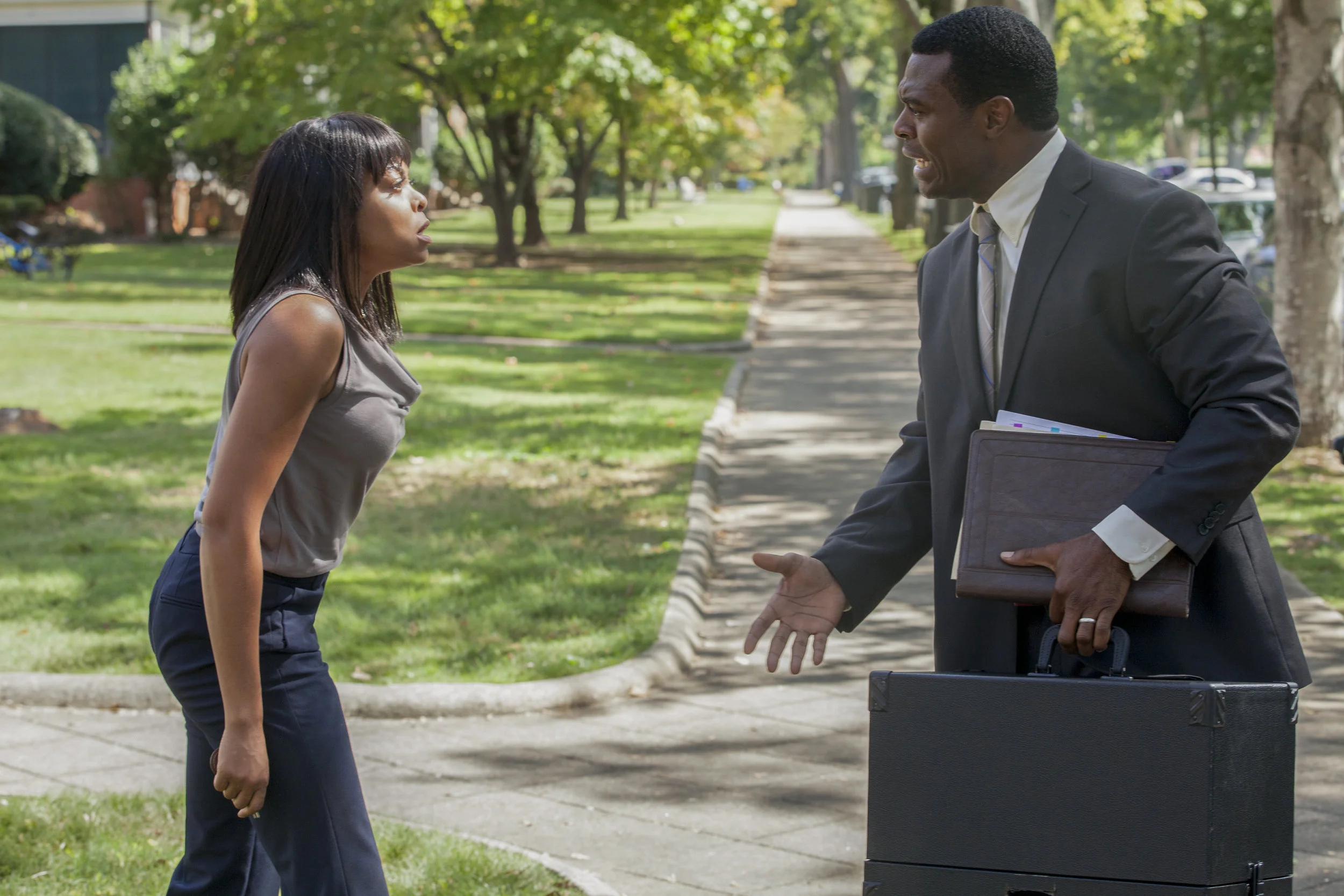No Ill Will Towards 'Acrimony'

If you’re lured into Acrimony by the tagline, “Hell hath no fury like a woman scorned,” and expect to see Taraji P. Henson play a role perfect for her — a woman fed up with a no-good man and ready to bring the reckoning for his trifles — you’d be a bit off the mark. But what we do get is much more haunting, in part because of how easy it is to relate to if you’ve ever had (or been) a “crazy” ex.
“If you’re going there looking for typical Tyler Perry, this is not it,” writer and producer Tyler Perry said in a video posted to his Twitter page. “If you’re a man who’s a dreamer and you got a woman that’s been holding you down and has been walking with you through it, you might want to see this because this is something that speaks to that part of the relationship, but it also speaks to letting go.”
The movie opens with Melinda facing judgement in a courtroom, being ordered to stay away from her ex-husband and his fiance and to attend counseling for her anger issues. She’s visibly still ready to put hands on somebody, but assault in the court isn’t a good look. Cut to her first counseling session. In what starts off as a woman simply nagging about how she was done wrong, the story starts to play out amazingly well. We’re really able to see where it all began, and how it all went down.
A younger, college-aged Melinda (Ajiona Alexus) bumps into a young Robert (Antonio Madison), and despite her immediate horrible attitude, he shows interest in her, and his charm quickly wins her over. It’s here that we learn who Robert is: a poor mechanical engineering major who has big dreams of inventing a self-charging battery and working with Prescott Industries, and Melinda is his meal ticket to the top.
Ajiona Alexus as young Melinda and Antonio Madison as young Robert. Photos by Chip Bergmann
We get a taste of Melinda’s craziness when she catches Robert cheating on her, and from there we know things aren’t going to end well. Robert manages to smooth things over with promises of a better future — a beautiful home in a highrise, a personal yacht and even a private jet, despite having no money for even an engagement ring. Melinda’s sisters are entirely against the idea — and for good reason — but Melinda is stuck in her ways, and after a couple of years, the two are married. Robert’s tunnel-vision keeps him from getting a job, forcing Melinda to keep the pair afloat; even going so far as to mortgage her dead mother’s home.
Understandably, Melinda's family is far from pleased with their relationship and her sisters have no problem with voicing their opinions of Robert, even with him in the room, and in many ways it's justified. Robert has been living on Melinda's dime since college, hasn't held a job, kept secrets, and is often a major cry baby, which isn't typical of someone coming from his background — parents out of the picture, living on his own, having to make his own way.
What started off as a turbulent love story, finally comes to a close after 20 years when Melinda — at the urging of her sisters — demands a divorce after a woman’s wallet is found in Robert’s work truck. We never really know if he cheated, so rest assured people will have different opinions — and that's part of the film's genius. But the divorce is only the beginning of storm.
A While after the divorce, Robert’s tunnel vision leads to the light, when he reconnects with a certain friend from college who now works at Prescott Industries and helps him get in the door. His battery becomes a success with a hefty paycheck attached, allowing him to finally live the life he promised...only not with Melinda, and she refuses to allow that.
As we get to watch the story unfold, it becomes more and more apparent that Melinda isn’t mentally stable. Her counselor suggests borderline personality disorder, but the movie fails to dive deeper into the very real topic of mental health and relationships. Instead, we’re left with what many would consider a one-off of the classic, “Fatal Attraction.” But this isn’t a film about a woman scorned — it’s a film about a legitimately unstable woman and what happens when she doesn’t get the help and support she needs.
It’s disheartening to see Melinda’s instability, and how it’s so often overlooked by those around her until it’s too late to stop her vendetta. In a way, this film speaks to the larger issue of mental health not being addressed in the Black community. But for what it’s worth, the movie is very entertaining, and hopefully a conversation starter.
4 out of 5
Nick Bailey is a forward thinking journalist with a well-rounded skill set unafraid to take on topics head on. He now resides in Austin, TX and continues to create content on a daily basis.








